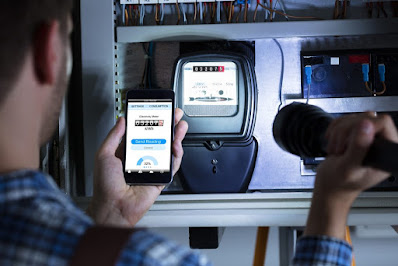An Easier Way to Improve the Air Quality in Your Building

Indoor air quality in commercial spaces is extremely important. Low-quality or contaminated air can cause fatigue, headaches, and other unpleasant symptoms and it can trigger asthma in those who have it. If serious levels of mold, mildew, bacteria and other contaminants are present in indoor air, then people are at risk of experiencing serious health effects.
But what causes indoor air pollution, and how can you improve and continually monitor the quality of your air? As a commercial building owner, you’re responsible for keeping your buildings well ventilated and supplied with high quality air. In this article, we explore some helpful ways to ensure your building has high quality air at all times.
Ways to improve air quality
There are many actions you can take to improve your indoor air quality and to mitigate future air quality problems:
- Keep the space clean. If you haven’t already, invest
in a commercial cleaning service for your building and ensure they
regularly vacuum, mop, dust, and wipe down all surfaces. A deep clean is
recommended once a month, especially for buildings with lots of foot
traffic.
- Change your air filters
regularly. Air filters
are easy to forget about because they’re out of sight and out of mind. But
air filters are essential in eliminating and controlling indoor air
pollution, and commercial air filters should be changed at least three to
four times a year.
- Invest in air purifiers. Some commercial air purifiers
can be installed into your existing HVAC system. And for smaller
commercial spaces, freestanding air purifiers will often suffice.
- Ensure your air contains healthy humidity levels. It’s uncomfortable to breathe air that’s too dry, and it’s uncomfortable to breathe air that’s too humid, meaning you have to find the right balance and keep it there. Depending on where you live and what the local climate is like, you may need humidifiers or dehumidifiers. We recommend keeping your indoor air at around 30-50% humidity.
The benefits of an air quality sensor
Indoor air quality monitoring is a great way to really understand how clean your indoor air is, and allows you to take necessary measures to improve it. You can monitor the quality of your air by using several different types of sensors, including ones that measure and test for:
- Carbon monoxide
- Humidity
- Radon
- Formaldehyde
- Methanie
- Particulate matter
When we exhale, we release CO2 into the air. Commercial spaces, especially spaces that can become crowded, should constantly monitor the indoor air for CO2 levels and turn on the ventilation system when necessary. By monitoring CO2 levels and only using your ventilation system when you need it, as opposed to allowing it to run 24/7, you’re reducing your energy usage and preventing your ventilation system from working overtime when it’s not necessary.
Primary causes of indoor air quality problems
Indoor air pollution comes from many places, and a good commercial HVAC system works to filter contaminants and keep them from making their way into your air. Some primary causes of indoor air quality problem include:
- Cigarettes and cigars
- Building materials and other furnishings like asbestos, newly installed flooring, new upholstery and new carpet
- Chemicals found in cleaning products
- Outdoor contaminants that find their way in like pesticides and car exhaust
- Poor ventilation.
We now know how important natural ventilation is, and building owners should come up with a solid plan to ensure healthy indoor air quality at all times. For more information about energy efficient HVAC units, or if you have any other questions about indoor air quality, please contact our team at Tri-Tech Energy today.
Original content is posted on https://www.tritechenergy.com/blog/an-easier-way-to-improve-the-air-quality-in-your-building/

Comments
Post a Comment